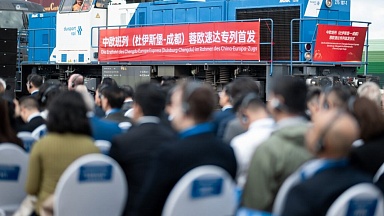According to Otto Schacht, Kuehne + Nagel’s executive vice president of sea logistics, this year’s supply chain shocks and volatility mean container shipping is moving away from being largely cost-focused.
For example, he said, many customers were expecting a 50%-60% drop in volumes in April and May, but demand came back much faster than expected, with the resulting uncertainty having a huge impact on supply chains.
«A lot of global shippers had no visibility on purchase order details,» Mr Schacht said during a webinar last week. «I think the focus is now on better visibility.
«A lot of people are saying they have to invest more money into this, and that they need the right strategic partners. So we’re getting away from ocean shipping as being a purely transactional business, to being more organised within supply chains.»
Vincent Clerc, Maersk CEO for ocean and logistics, agreed that a lot of companies were «scrambling to cope» with the uptick in demand as the lockdowns had quickly shifted consumer spending from travel and experiences to buying physical goods.
He added: «The conversation with many customers during the second quarter was ‘how can you slow down my goods? I don’t need them right now’. But today it’s ‘how can you speed them up? and how can I get more allocation?’.
«So we actually moved from putting on the handbrake to putting the pedal to the metal.»
The sudden bounce-back in demand created some operational issues, however.
«We’ve had a hard time repositioning equipment back to Asia fast enough,» Mr Clerc admitted. «And then you start to see congestion at destination ports and a shortage of truckers, which compounds the shortage of equipment where it’s needed for the next shipments.»
He said Maersk’s entire fleet was now fully deployed, with «all available equipment moving goods».
He added: «We’re managing hand-to-mouth now to make sure we provide as much speed, as much capacity and as much reactiveness to needs that our customers have.»
Alan Murphy, CEO and founder of Sea-Intelligence, said that as the industry shifted from a demand crisis to an operational crisis, the battleground for carriers and forwarders would be over who can better manage the increased volatility, while also providing visibility and efficient exception handling to customers.
«I think the era of below-cost freight rates is gone, because carriers can much more tactically adjust capacity to the available demand and sustain rates,» he added.



